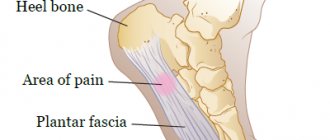Psychotherapist
Krashkina
Irina Ivanovna
31 years of experience
Psychotherapist, Candidate of Medical Sciences, member of the Russian Professional Psychotherapeutic League
Make an appointment
Therapists are most often approached with complaints that are characteristic of disorders of the digestive system. Everyone should know what the symptoms of dyspepsia are in an adult. Diagnosis requires a serious differential approach, since this group includes all nonspecific signs of symptom complexes of the gastrointestinal tract. Treatment of dyspepsia directly depends on the causes of the disease, and in most cases this is a deficiency of digestive enzymes or poor nutrition.
Symptoms and signs of dyspepsia
Dyspepsia syndrome is a digestive disorder and symptoms that are characteristic of various diseases of the gastrointestinal tract and their borderline phases.
When digestion is disturbed, symptoms appear that are united by a common name - gastric dyspepsia, this includes:
- problems with swallowing;
- nausea and vomiting attacks;
- belching;
- pain in the stomach;
- heartburn;
- rumbling in the stomach;
- bloating;
- constipation, diarrhea.
Dyspepsia of the stomach and intestines causes pain in the epigastric region. They can be either quite intense or in the form of mild discomfort. There is a feeling of rapid satiety and fullness, and as a result, nausea, belching, and heartburn. Another alarming sign is loss of appetite, quickly and sharply. After this, the person begins to lose weight for no reason. Intestinal dyspepsia is accompanied by rumbling in the stomach, flatulence, diarrhea or constipation.
Disruption of the process of digesting food in the intestines may indicate pathologies such as dysbiosis, diverticulitis, enzymopathy, enteritis, colitis, tumors in the intestines, irritable bowel syndrome, pancreatic diseases, and metabolic pathologies. Also, intestinal dyspepsia may indicate that an infection is developing in it (dysentery, cholera, intestinal tuberculosis, salmonellosis, etc.).
There are 2 main groups of dyspeptic disorders - functional dyspepsia and organic. In the first case, only disturbances in the functioning of the organ are detected, that is, functional lesions, while in the second they are exclusively organic in nature. In the latter case, the symptoms will be more pronounced, and the disorders will continue for a long time.
Are you experiencing symptoms of dyspepsia?
Only a doctor can accurately diagnose the disease. Don't delay your consultation - call
Features of the course of the disease in children
Organic gastrointestinal pathology in children occurs in only 30% of cases. Functional disorders of the digestive organs are mainly noted. As for the clinical manifestations of FD, the symptom complex characteristic of adults is also observed in children. In addition, complaints from young patients are characterized by lack of appetite, sleep disturbances, headaches, dizziness, and increased sweating.
Of the etiological factors, psycho-emotional overload, poor diet, unbalanced intake of nutrients into the body, or the harmful effects of certain medications come to the fore.
If a child is suspected of having functional dyspepsia, he should be consulted by three doctors at once - a pediatrician, a pediatric gastroenterologist and a psychotherapist. This will ensure accurate diagnosis, timely adequate therapy and prevent the development of organic pathology in the future.
Causes
There are several forms depending on the reasons that cause the development of the syndrome:
- simple dyspepsia. It is also called nutritional. Caused by nutritional problems. In turn, there is fatty (soapy), fermentative and putrefactive dyspepsia. In the latter case, it develops if the food is dominated by protein products or stale meat is used. Fermentation develops from excessive consumption of carbohydrates (bread, cabbage, legumes, sugar) and drinks that cause fermentation (beer and kvass). Fatty dyspepsia develops with excessive consumption of fatty foods, especially pork and lamb;
- dyspepsia associated with a deficiency of secreted enzymes for digesting food in the intestines and stomach. In turn, it can be gastrogenic (lack of enzymes in the stomach), pancreatogenic (deficiency of pancreatic substances), enterogenic (lack of intestinal juices), hepatogenic (insufficient secretion of bile from the liver);
- dyspepsia, which is associated with problems with the absorption of food in the intestines with malabsorption syndrome. As a result, nutritional components do not flow from the intestines into the blood;
- dyspepsia, which is associated with intestinal infections. In this case, it could be either dysentery or salmonellosis.
- intoxication. It manifests itself due to poisoning in various diseases, including influenza, acute surgical pathologies, and also when consuming poisons.
All of these factors can contribute to the onset of the disease. Symptoms and treatment of dyspepsia of the stomach and intestines directly depend on the causes.
Preventing indigestion
The normal functioning of the digestive system requires compliance with the following rules:
- healthy eating to prevent indigestion
(refusal of strict diets, balanced composition of proteins, fats and carbohydrates, consumption of vegetables and fruits in sufficient quantities, exclusion of fast food, etc.); - getting rid of bad habits
(frequent drinking of alcohol, eating dry food, eating on the go, overeating at night, not having breakfast); - developing an adequate response to stress
(indigestion is often associated with negative emotions and nervous tension).
Measures to prevent dyspepsia also include proper rest, healthy sleep, and sufficient physical activity.
You can get tested for a tendency to gastrointestinal diseases, including indigestion, at the Medical Genetics Center.
Risk factors
These include:
- frequent and severe stress, emotional tension. In this case, the pathology will have a neurotic origin;
- some medication use. This applies to antibiotics, hormonal or antitumor and other agents;
- poor nutrition. Most often this concerns overeating;
- intoxication. In this case, there may be either a disease of viral or bacterial origin, or household poisoning;
- excessive release of hydrochloric acid;
- problems with gastrointestinal motility.
These are the main factors that contribute to the occurrence of dyspepsia.
The effect of the diet has not been proven
The exact causes of functional dyspepsia are not known today. According to gastroenterologists, false myths prevail in society claiming that the disease is caused by poor diet. Although there is no scientific explanation for this relationship, patients tend to believe this claim.
It has not been scientifically proven that functional dyspepsia, like ulcers, can be caused by any food or poor diet. Helicobacter pylori infection is considered an important cause of ulcers and dyspepsia. But although the pathogen is found in 70% of people, only a portion of these patients complain of dyspepsia. So this is not the only factor provoking pathology. Individual heredity and other environmental factors are important for the appearance of symptoms.
Complications
Gastric dyspepsia occurs in diseases such as esophagitis, GERD, cancer, stenosis or ulcer of the esophagus, cancer or the presence of benign tumors, periesophagitis, scleroderma, diverticulum. Also, the presence of dyspepsia of the stomach and intestines may indicate diseases of the muscles, central and peripheral nervous systems, pathologies of internal organs, for example, narrowing of the esophagus can be caused by cysts and tumors that oppress it from the outside. This also applies to aortic aneurysm, vascular anomalies, and thyroid hyperplasia.
Complications of dyspepsia are most often associated with the underlying illness that causes the appearance of this syndrome. The patient may suddenly lose weight and lose appetite for a long time. One of the severe consequences is Mallory-Weiss syndrome. In this case, the mucous layers of the lower part of the esophagus, where it passes into the stomach, rupture. Because of this, gastric bleeding begins. It can be quite intense and even lead to death. Most often, the occurrence of Mallory-Weiss syndrome is associated with repeated bouts of vomiting.
When to see a doctor
For treatment of stomach or intestinal dyspepsia, you should contact a gastroenterologist. Don't delay going to the doctor. Particular attention should be paid to such symptoms as abdominal pain at night, sudden weight loss for no reason, nausea, vomiting, frequent belching, and heartburn attacks. Diagnostics can be carried out at JSC "Medicine" (clinic of Academician Roitberg), which is located in the center of Moscow.
Diagnosis of dyspepsia
Before starting treatment for dyspepsia, it is necessary to undergo an examination, which includes not only a description of complaints, an external examination, but also the following:
- laboratory tests - general and biochemical blood tests, examination of stool for the presence of blood, coprogram;
- instrumental studies - a test for gastric acid secretion, esophagogastroduodenoscopy, examination of gastric materials for the presence of Helicobacter pylori, ultrasound of the abdominal organs, colonoscopy, radiography, computed tomography, esophageal and antroduodenal manometry.
You can undergo diagnostics at JSC "Medicine" (clinic of Academician Roitberg), which is located in the central district of Moscow, near the Tverskaya, Novoslobodskaya, Belorusskaya, Chekhovskaya metro stations. If you have a disease, you may need to consult not only a gastroenterologist, but also other specialists: a psychiatrist, neurologist, cardiologist, endocrinologist.
3.How to relieve the symptoms of the disease?
p> Simple lifestyle changes can help relieve the symptoms of dyspepsia
. For example, changing your diet. To treat dyspepsia, it is better to eat small meals several times a day rather than two or three large meals. After eating, you should not go to bed for at least another two to three hours. Chocolate, mint and alcohol can worsen indigestion as they relax the valve between the esophagus and stomach. It is worth considering that spicy foods and foods high in acid (oranges, tomatoes), as well as coffee, increase dyspepsia in some people. In addition to all of the above, to prevent and treat dyspepsia, you need to quit smoking, lose weight if you are overweight, and sleep on a raised pillow.
Of course, if the cause of dyspepsia is a specific (and even more serious) disease, first of all it is necessary to treat it. But if such a disease is not detected, treatment of dyspepsia concentrates on alleviating the symptoms of dyspepsia using available methods.
About our clinic Chistye Prudy metro station Medintercom page!
Treatment
To treat dyspepsia, drug therapy is necessary. Separately, you need to get rid of diarrhea or constipation, and for this purpose special means are prescribed. Other drugs are also prescribed to treat dyspepsia and alleviate the patient’s condition:
- painkillers (antispasmodics);
- drugs that reduce the level of acidity in the stomach;
- enzyme agents to improve digestion processes.
Treatment must be comprehensive and systemic. It is necessary to treat the disease that caused dyspepsia, that is, gastritis, duodenitis, GERD, cholecystitis, gastric or intestinal ulcers, pancreatic diseases.
Myths and dangerous misconceptions in the treatment of dyspepsia
Main misconceptions:
- nausea, heaviness and bloating will go away on their own. They are temporary, so you don't have to go to the hospital;
- antispasmodics or enzyme agents remove heaviness in the stomach and discomfort in the intestines;
- If you eat something sour or spicy, the discomfort will disappear.
All of the above opinions are completely wrong. You should not rely on myths that were previously believed. If alarming symptoms appear, you should consult a specialist.
Disease prognosis
Functional dyspepsia, provided timely contact with a specialist, responds well to treatment, and it is often possible to achieve a complete cure. It is important to prevent repeated relapses of the disease. Therefore, all preventive measures should be followed, from lifestyle and nutrition adjustments to annual routine examinations and visits to a gastroenterologist.
The CUELT clinic has everything you need to establish an accurate diagnosis and select an effective treatment method. Modern equipment and vast clinical experience of medical professionals allow us to provide medical care at a fairly high level.










